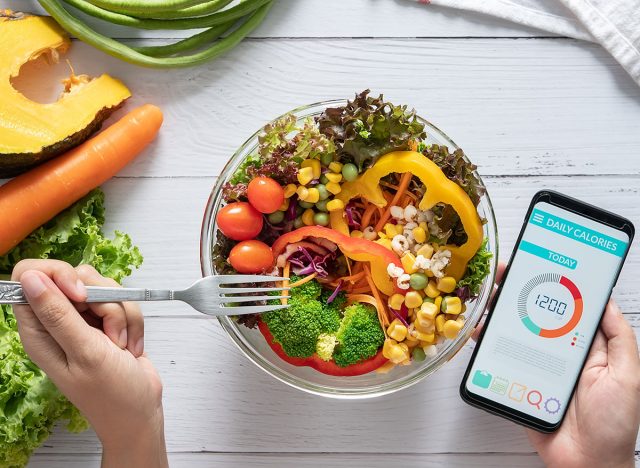9 Weight Loss Tricks A Dietitian Uses During The Holidays

The holiday season brings joy, festivities, and, unfortunately, the dreaded weight gain that comes with endless parties and tempting treats. But registered dietitian Maria Lucey has good news: you don't have to choose between enjoying the holidays and maintaining your health goals. With her expert guidance, you can navigate the season's celebrations while keeping your wellness on track. Read on to discover nine proven strategies that will help you enjoy every festive moment while keeping those extra pounds at bay.
Keep Your Holiday Season Actually Holiday-Length
"The average person only gains one pound over the festive season," Maria points out in her post, "but this can vary significantly depending on how long you extend your holiday eating." She emphasizes that the key is not letting holiday eating stretch from late November through mid-January. Instead, focus your celebrations on actual holiday celebration days.
Practice Mindful Portions
When it comes to those irresistible holiday dishes, Maria suggests a smart approach: "I love to try a little bit of everything, but that's the key here—a little bit of everything." Start with small portions of rich foods and balance your plate with lighter options like salads, roasted vegetables, and lean proteins.
RELATED: The Top 20 Foods For Ultimate Weight Loss
Track Those Treats

While Maria doesn't advocate counting calories during holidays, she recommends maintaining calorie awareness. "One celebration chocolate typically has around 50 calories, a Ferrero Rocher has 70, and a Lindt chocolate has 80," she explains. Keep track of wrappers to avoid mindless eating that can add up to a meal's worth of calories.
Bring Your Own Healthy Option
"Offer to bring a dish to gatherings," Maria advises. This thoughtful gesture ensures you'll have at least one healthier option available without drawing attention to your health goals. She shares how her mother would bring both biscuits and a fruit platter to gatherings, providing a balanced choice for everyone.
Take Your Time Between Courses
Maria emphasizes the importance of pacing: "It takes about 20 minutes for your brain to register that your stomach is full." She suggests taking breaks between courses, even if it's just standing up or helping to clear plates, to recognize your fullness cues better.
RELATED: The 7 Worst Breakfast Habits For Weight Loss
Focus on People, Not Just Food
"The true heart of holidays is spending time with loved ones," Maria reminds us. She encourages shifting focus from the food to creating memories and engaging in meaningful conversations with family and friends.
Maintain Simple Routines
During the in-between days, Maria recommends setting small, achievable goals. "Focus on how you want to feel, not just how you want to look," she says. Simple habits like having a balanced breakfast or taking short walks can help maintain momentum without adding holiday stress.
Start Light, Stay Satisfied
For big holiday meals, Maria suggests starting with vegetable-based soups or salads. "Studies show people who start with veggie-based options end up eating fewer calories overall," she notes. She also emphasizes maintaining protein portions to promote fullness and trigger appetite-reducing hormones.
Be Kind to Yourself

Most importantly, Maria stresses self-compassion: "You will overindulge at some point, and that's okay. The key is to draw a line, move on, and start fresh at the next meal." She encourages moving away from an all-or-nothing mindset and focusing on consistency rather than perfection.
RELATED: The 8 Foods That Fight Bloating and Help Shrink Your Waist
The Science Behind Protein and Satiety
"Protein decreases the hunger hormone ghrelin and increases hormones like peptide YY, GLP-1, and cholecystokinin, which promote feelings of fullness and satisfaction," says Mayo Clinic. This explains why including protein in your holiday meals can help prevent overindulging. The Cleveland Clinic recommends athletes and heavy exercisers consume 1 to 1.5 grams of protein per pound of their goal weight, though needs vary based on activity level and individual factors.
Timing Matters: The Rhythm of Eating
According to the National Institutes of Health, "Consistent meal timing aligns with the body's circadian rhythms, potentially reducing the risk of obesity and improving metabolic health." This research supports Maria's advice about maintaining regular eating patterns during the holiday season. The NIH also notes that "eating during inactive periods, such as late at night, can disrupt the body's internal clock, leading to weight gain and metabolic issues," making it especially important to mind your meal timing during holiday celebrations. And if you enjoyed this article, take advantage of these 15 Quick Ways to Lose Body Fat Percentage in a Week.




